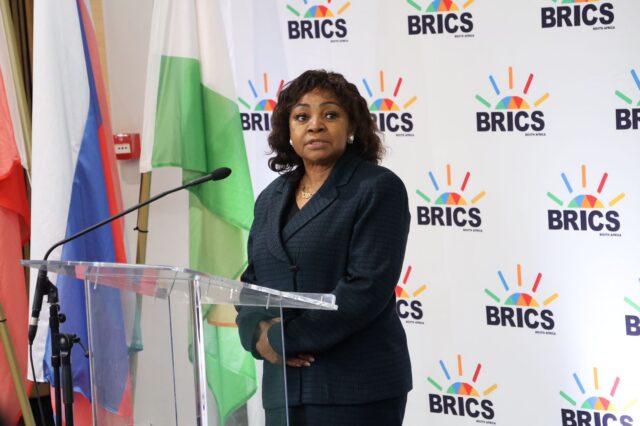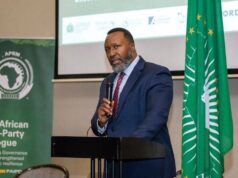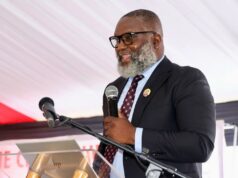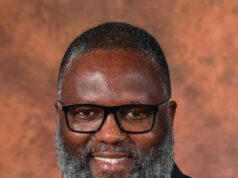Public Service and Administration Deputy Minister, Dr Chana Pilane Majake says Africa’s development blueprint to achieve inclusive socio-economic development over a 50-year period-Agenda 2063, can only be realised through accountable, ethical, capable, and developmental states.
Delivering her opening address at the BRICS conference on governance and public administration reform in Pretoria on Monday, Dr Pilane-Majake said: “Agenda 2063 can only be realised through accountable, ethical, capable, developmental states across the entire continent of Africa.
“Our focus is to build a partnership between BRICS and Africa to unlock mutually beneficial opportunities for increased trade, investment, and infrastructure.
The conference brought together government departments and training and development institutes from the BRICS bloc and related countries.
The AU has engineered and approved the African Union’s Agenda 2063, with the intention of building strong institutions to enhance cross boarder economic development and good governance.
As a build-up towards the much-awaited upcoming BRICS Summit, the highest decision-making body in South Africa-Cabinet, approved a series of meetings and events, one of which is today’s pre-summit conference.
The conference is also aligned with the second priority of “transforming education and skills development for the future.” with the view to building a capable, ethical, and developmental state.
South Africa’s five priorities for 2023
According to the Deputy Minister, South Africa’s five priorities for 2023 are:
- Developing inclusive partnerships towards an equitable just transition.
- Upscaling education and skills development for the future.
- Unlocking opportunities through the African Continental Free Trade Area.
- Strengthening post-pandemic socio-economic recovery and realization of Agenda 2030 through Sustainable Development.
- Strengthening multilateralism, reform of global governance institutions, and strengthening participation of women in peace processes.
Deputy Minister Pilane-Majake said government institutions must at all levels have the capacity to prioritise, design, implement and monitor development activities.
“Building capable institutions requires an investment in building human capabilities to be diligent, masterful, and innovative.
“South Africa has committed to building a developmental state that efficiently guides national economic development by mobilising and directing resources in a manner that enhances realisation of developmental goals,” she said.
The Deputy Minister further said knowledge management must be made a priority for relevant and appropriate placement of the workforce toward achievement of goals as prescribed by specific mandates of government departments.
South Africa’s clear vision for growth and development is outlined in the National Development Plan (NDP) in the context of realisation of socio-economic rights and redistribution of wealth to redress the apartheid inequalities of the past.
According to Dr Pilane-Majake the South Africa government is more certain that the BRICS partnership has the ability support South Africa and the African continent at large on the journey towards economic recovery.
The National School of Government
According to the Deputy Minister, the National School of Government (NSG) in South Africa remains a key institution to drive the developmental state agenda of building state capacity.
This year marks 10 years of establishment of the NSG with programmes that are focusing on-the-job training and development in the public service for public servants, senior managers, and executive leaders-including preparing unemployed youth graduates to enter public service and make it a career of choice.

When asked about the significance of the conference, Principal of the NSG, Busani Ngcaweni said: “as an academy of the public sector, we arranged this conference with our counterparts which are the National Schools of Government in BRICS countries including universities, the idea being that we must share perspectives on public sector reforms with reference to issues of building a capable state.
“Our BRICS counterparts’ countries have done a lot in this regard, we are learning from them, they are learning from us, so by gathering researchers, and scholars, we will gain much better understanding of how cutting edge programmes are being developed and deployed across the world in order for us as the NSG to reposition ourselves a premier school of government that is delivering programmes that are effective, programmes that are groundbreaking, programmes that are making impact.
“We can only do that through sharing, learning from others and also developing our own curriculum from the content generated from this conference.”
This year marks the 15th BRICS Summit, that will take place from 22-24 August 2023 in South Africa.









